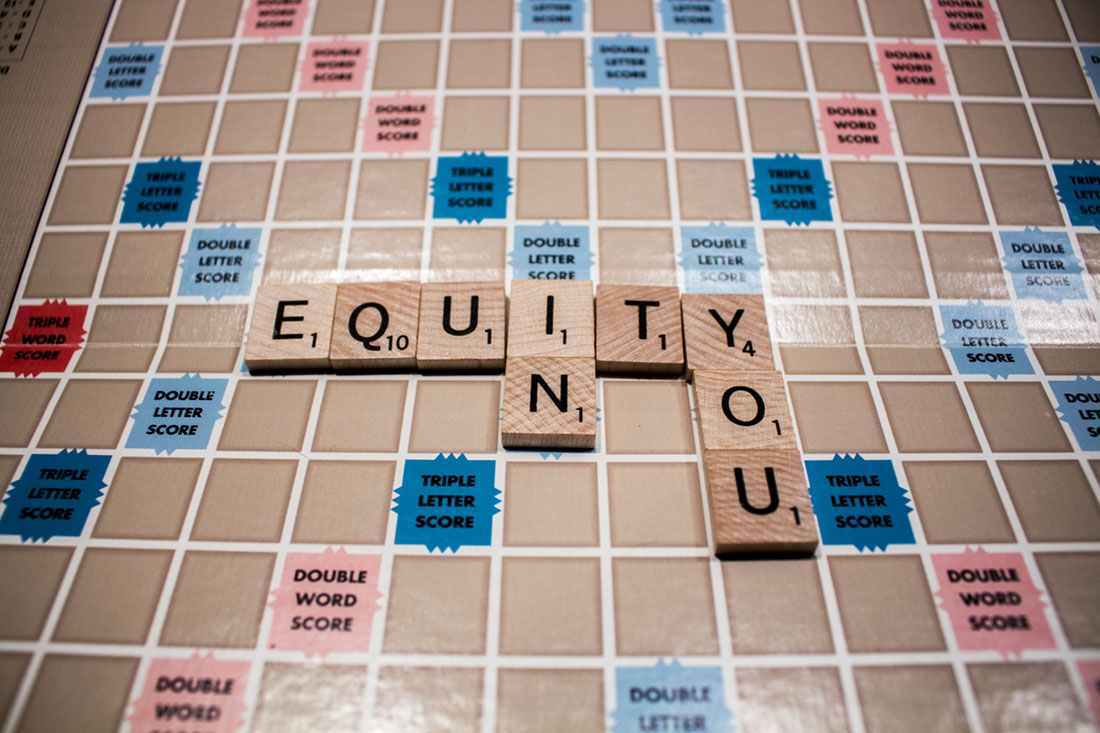Take-Home Message: Your past failures do not have to define you, nor should you let them shape who you are becoming.
We are all afraid of something and for our own reasons. There’s something about the object of our fears that gives rise to extreme vulnerability. This vulnerability stems from our expectations, I think. When we examine our experiences being vulnerable and tend to focus on the bad ones more than the good, we establish an avoidance to situations or events that resemble the bad experiences.
This is my story about how I let the fear of failure and the avoidance of vulnerability resulting from that fear control my life, and how I ultimately overcame it.
Back when I was a little tike, around four years old or so, my family had a massive chocolate labrador retriever named Beau. He was a dinosaur compared to the miniature person I was back then. His towering behemoth figure required more food than any beast I’ve ever before witnessed. So much so, in fact, that we used to keep a feeder for him inside of his outdoor pen.
One morning, the little devil of a four-year-old I was, went outside to play. For some mysterious reason, I meandered into Beau’s pen and thought it a good idea to kick his feeder. To my demise, the nest of wasps inhabiting the feeder took my rampant eviction notice to them as quite the threat. Responding like wasps notoriously respond to such behavior, four-year-old me learned a rather abrupt less about cause and effect that’s never left me. I’m not sure what I had expected, but it definitely wasn’t a hundred sores from stings.
To this day, flying, stinging insects give me the chills. I vehemently despise all of them, even realizing the small likelihood of repeating that incident if I give them their space. Today, I think this fear is somewhat irrational. However, after much analysis of it, I’ve come to a conclusion that I think holds water for all fears.
I’m not afraid of being stung. I’m not even really afraid of these members of the Order of Hymenoptera. My fear lies in something deeper, less tangible, and entirely out of my control. My fear of these flying creatures comes from the vulnerability I once felt as a result of an ill-begotten interaction with them. As a defense mechanism to this vulnerability, my fight-or-flight instinct has adapted to kick in when one of these flying, buzzing triggers is around, and put me on high alert.
It is my belief that this vulnerability is key to understanding the nature of all of my fears. I have found this to be the control in all of the fears I have examined which have passed in and out of my life throughout the years. It’s not so much the actual thing so much as this feeling of being exposed, vulnerable, and defenseless to the inevitable. And yet, today, I believe that this vulnerability is little more than a result of poorly devised expectations.
As I examine the biggest fear that was once prevalent in my life, I can see this deeply rooted avoidance of vulnerability as the source of this fear: The fear of failure. As I look a little closer, I can track the time and places of the experiences and instances that sowed this fear and the series of decisions that led to these circumstances. But more importantly, I see the absence of considering failure as a possibility, as I expected myself to be flawless. As a result, I was totally unprepared to deal with failure when it came knocking.
I think back to the time I told my dad I could manage skating down the 10-foot slide at the local park after someone gifted me a pair of roller blades for my eighth birthday. Pride dismantled.
I think back to the time I was up to bat in little league with two outs and the game on the line and struck out. And how I ended up riding the pine for game after game following this. Whif, I blew it. I let the team down.
I think back to the time in eighth grade when I participated in my first public speaking contest and forgot the words halfway through and cried in front of a panel of adult judges. Humiliated.
I think about the time freshman year of high school when I washed my blue socks with my white uniform, dying it blue and coach still made me wear it in the biggest tournament of the year. Distractingly embarrassed.
I think about the time that I ran for Student Council President and didn’t get elected. And the time I ran for FFA Chapter President and lost to someone younger. Overwhelmingly discouraged.
I think about the time I pleaded with the leadership in my church about keeping the younger and older students together and how they refused, and how I walked out on organized religion because of it. Utterly shaken and confused.
I think about the last game of baseball I played as a senior in high school that I pitched and walking off the field knowing I would hang it up forever. Goodbye, glory days. Distraught.
I think about the first time my heart was broken as an 18-year-old boy because I had tied my identity up in a relationship. Crushed. Lesson learned.
I consider the time that I won a statewide election and my reputation was put on display for nearly 24,000 students, thousands of parents and educators across Oklahoma. And how I threw it all away for a few good times and a handful of misguided decisions. That one stung worse than the wasps. Entirely exposed and despaired.
And I think about the day I was asked to move out of my fraternity house as chapter president because on my watch someone’s life had been put in danger and I hadn’t done anything to prevent it. Some lessons hurt worse than others. Ashamed and Abandoned.
There are many more situations and experiences that come to mind when I think about the thousands of branches of this root system to my vulnerabilities. I think about how each of these made me feel and how I responded in the face of these different adversities. I think about how I could have better handled these, too, had I simply set more realistic expectations for myself or even contemplated the what-ifs if failure arrived.
In many cases, I can see how earth-shattering these failures were to me and how they altered my focus looking forward in life. I grasp now how prevalent this fear of failure became in shaping the narrative of my life. Back then, even contemplating a decision that looked like it had the potentiality of failure would cause me to shutter, much like seeing a bee or wasp. And why? Not because I was scared of facing the actual event or hurdles that stood in the way. Instead, it was because I couldn’t bear to think about revisiting the vulnerabilities that had once consumed and shaken me so profoundly.
It wasn’t even fear of failure or fear of bees or wasps, ever. All of these fears boiled down to an avoidance of vulnerability, as if being detached and tough all the time could provide me security and also happiness.
I allowed the horror of vulnerability to live rent free in my mind, and in so doing ceded the authority of my life to this force that had erected itself only by the expectations of myself I had poorly constructed.
I believed that I could not fail. And as a result, any time I caught the scent of failure looming anywhere near a pathway, I briefly flashed back to a multiplicity of failures that caused me to lose sight of my own valuation of myself; these failures that had rendered me vulnerable. Each time I did this, I cautiously, almost absentmindedly flipped my blinker and changed lanes, refusing to consider where exactly it was I was rerouting to. I only knew I had to drive as far and fast away from the possibility of failure and the feelings of vulnerability, because, after all, I could not fail, not me.
And then I began reading…
I read Atlas Shrugged and I watched as the world crumbled around Dagny Taggart and Hank Rearden despite all of their efforts to keep it afloat.
And I read, too about how Ayn Rand’s works had been rejected by publishers before she ever made it.
I read about Lysander Spooner’s fight to provide cheaper mail to the United States in lieu of the postal monopoly and how he ultimately died a poor man, by the hands of thieves preventing his success at every turn.
I read about Henry David Thoreau’s withdrawing from society to be the arbiter of his own life and about the time he was thrown in jail for refusal to pay property taxes.
I revisited stories about Michael Jordan being cut from his high school basketball team.
I read about one of my favorite authors, Oscar Wilde, dying in exile because of his sexual orientation.
I read about Thomas Paine, the man dubbed responsible for stirring the motivations for the American Revolution, being jailed in France and then being cast out in America upon his return for his ideas about religion, and how he died broke and despised.
I read about Socrates choosing to swallow hemlock rather than to defame his character.
I read story after story about people who looked directly into the face of failure and dared not quit. I read about them overcoming defeat and vulnerability and rejection to achieve greatness. I read about their resilience and drive. But most of all, I read about these individuals as people who lived life by their own terms and refused to take a second look for the opinions of others. They had made themselves entirely vulnerable, yet found so much strength in their own valuation that the opinions of others could not stop them…
And it all clicked. I saw these dozens of scenarios in my own life where dissatisfaction, disappointment, and defeat loomed over my head. I saw the vulnerability and fears I experienced as the response to my own disapproval of myself. I saw the unrealistic expectations I had been striving to reach for what they were, and that by keeping these in place, I was setting myself up.
And with it, I saw a light at the end of the tunnel. I saw a way to overcome these and learn to respect and love myself again. I saw, finally, the point of having courage as a motive, rather than fear. And with these revelations, I unlocked the chains that had been restraining me from my own freedom and happiness.
I would like to close with two quotes, because I think they summarize these lessons nicely. Both are contained in You Don’t Need A Job, You Need Guts:
“Have the courage to live. Anyone can die.” –Robert Cody
It isn’t our deathbeds we’ve got to fear; hell, it’s over then. It’s the quiet moments of every single day that slip in and out of our consciousness; the ones at 3AM when our brains are finally quiet enough to turn their attention to the stuff the matters…the stuff we’ve been ignoring. It’s the slow, steady torture of our own thoughts; the thoughts that reflect the truth we’re most afraid to discover. You’re a pussy. A coward. A fraud. A two-bit has been. Your life means nothing, and all you can do is sit there with your dick in your hand, watching it pass you by.
Talk about regret.
Going out on a ledge and royally screwing up isn’t half as humiliating as not having the guts to get started in the first place.
You will screw it all up, you know. And that’s a good thing to know out of the gate, because now you can stop worrying about it. You can stop worrying you’ll make a fool out of yourself if you try and start your own business, because you can rest-assured that at some point, you will. What a relief! You can cross the fear of the unknown off the list, because now you know. You will screw up. You will suck. You will get angry. You will feel like a fool. You will fight battles. You will lose battles. And at some point, you will hate everything. And you will hate everyone.
But once you get past all that, you know what stops happening? You stop hating yourself. And that is worth its weight in 1,001 business flounders. You can look yourself in the eye again. –Ash Ambirge, You Don’t Need A Job, You Need Guts
And with that, I bid you to be fearless. I challenge you to ditch the victim mentality and to go out and own whatever it is that you feel led to do. Stop your worrying and letting your fears govern you. Stop being dismayed by your feelings of inadequacy or vulnerability. You’re going to fail. Expect it. And when it happens, you’ll be able to wipe the dust off and get back in the saddle. Go take life by the horns. You can do it.




